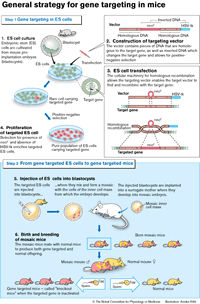Balzan Prize 2009 awarded for cognitive neuroscience and new materials
Advertisement
The names of the 2009 Balzan prize winners were announced:
BRENDA MILNER (UK - Canada), University of Montréal, for Cognitive Neuroscience
PAOLO ROSSI (Italy), Università di Firenze, for History of Science
TERENCE CAVE (UK), St John's College, Oxford, for Literature since 1500
MICHAEL GRÄTZEL (Germany - Switzerland), École Polytechnique Fédérale de Lausanne, for the Science of New Materials
The Balzan Prizes 2009 have been announced in Milan by the Chairman of the Balzan General Prize Committee, Salvatore Veca, together with the President of the Balzan "Prize" Foundation, Ambassador Bruno Bottai, in the Corriere della Sera Foundation.
Lord Krebs of Wytham (Principal of Jesus College, Oxford; Fellow of the Royal Society, London) read the motivation for the assignment of the Prize for the Cognitive Neuroscience to Brenda Milner: "for her pioneering studies of the role of the hippocampus in the formation of memory and her identification of different kinds of memory system".
Enric Banda (Research Professor of Geophysics at the Institute of Earth Sciences in Barcelona, Spanish Council for Scientific Research (CSIC); President of Euroscience, Strasbourg ) read the motivation for the assignment of the Prize for Science of New Materials to Michael Grätzel: "for his many contributions to the Science of New Materials, and in particular for his invention and development of a new type of photovoltaic solar cell, the Dye Sensitized Cell, commonly known as the Grätzel Cell".
The President of the General Prize Committee, Professor Salvatore Veca, announced that the 2010 Balzan Prizes will be awarded in the following fields: History of Theatre in all its aspects, European History (1400-1700) (including the British Isles), Biology of stem-cells and their potential application), Mathematics (pure or applied). The award fields vary each year and can be related to either a specific or an interdisciplinary field, and look to go beyond the traditional subjects both in the humanities (literature, the moral sciences and the arts) and in the sciences (medicine and the physical, mathematical and natural sciences), so as to give priority to innovative research.
Half of the one million Swiss Francs received by the winner of each of the four subjects must be destined for research work, preferably involving young scholars and researchers.
Most read news
Topics
Organizations
Other news from the department science

Get the chemical industry in your inbox
By submitting this form you agree that LUMITOS AG will send you the newsletter(s) selected above by email. Your data will not be passed on to third parties. Your data will be stored and processed in accordance with our data protection regulations. LUMITOS may contact you by email for the purpose of advertising or market and opinion surveys. You can revoke your consent at any time without giving reasons to LUMITOS AG, Ernst-Augustin-Str. 2, 12489 Berlin, Germany or by e-mail at revoke@lumitos.com with effect for the future. In addition, each email contains a link to unsubscribe from the corresponding newsletter.
































































